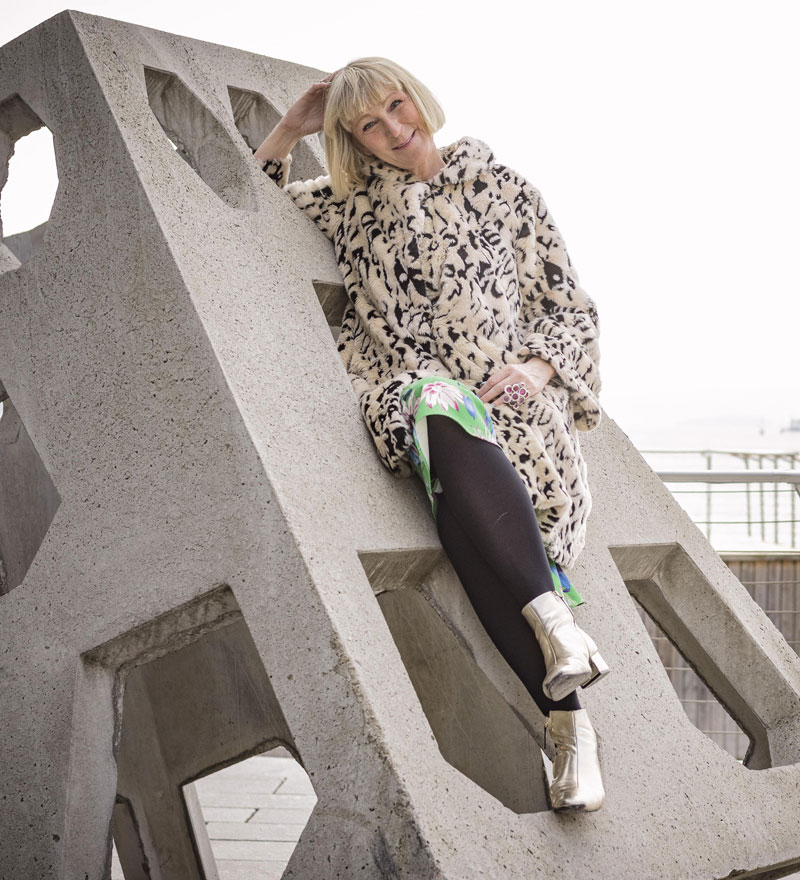Min vei fra stemmeløs operasangerinne til pusteekspert
Som ung var mitt største og eneste ønske å bli profesjonell operasanger. Jeg sang før jeg kunne snakke har jeg blitt fortalt. Etter videregående studerte jeg derfor på musikkonservatoriet og ble sangpedagog. Det var ikke nok for meg, jeg ville lære mer og drømte om de store scenene, og spesielt om Italia, operaens hjemland.
Valget var enkelt, jeg flyttet til Roma. Etter noen omveier fikk jeg den legendariske operasangerinnen Magda Laszlo, da i 80-årene, som min lærer. Hun ble min første viktige mentor i det store utland og hun lærte meg masse, ikke bare om sang, men om ydmykhet, ekthet og selve livet. Tenk, hun hadde selv fått roller komponert til seg av selveste Stravinsky, hadde blitt bedt om å steppe inn for Maria Callas, og likevel var hun det mest ydmyke mennesket jeg noen gang har truffet!
I Roma traff jeg også det jeg trodde var mannen i mitt liv, Guy, en britisk pianist og dirigent. Våre veier skiltes da jeg kom jeg inn på Master in Voice performance -studiet på Manhattan School of Music i New York. Den gang verdens beste skole for opera, og ikke nok med det, jeg fikk den aller beste læreren der, så jeg bare «måtte» flytte igjen.
Langt vekk fra mitt elskede Roma, og, ikke minst, langt vekk fra min store kjærlighet. Han flyttet tilbake til England, jeg over Atlanteren. Det er rart å tenke tilbake på, for utenifra så det ut som jeg levde selve drømmen, og det gjorde jeg på et vis også; ble venn med Placido Domingo og hans familie, fikk gratisbilletter til forestillinger på Metropolitan Opera, kjørte i limousiner OG bodde på et lite rom jeg delte med en sørkoreansk operastudent i Harlem. Et liv fullt av kontraster som jeg elsker, men likevel; Jeg lengtet meg syk etter Guy!
Tilfeldighetene gjorde at min lærer flyttet til Milano, jeg flyttet etter og ble en pendler mellom Milano og London.
Livet var pur lykke; Guy og jeg satt opp vår første opera sammen hvor han dirigerte og jeg sang hovedrollen. Jeg trodde ikke det var mulig å bli lykkeligere!
Det var akkurat da det smalt! Jeg våknet en morgen av at han så meg dypt inn i øynene, smilte og sa: «I didn’t sleep all night because I was thinking of us». Lykkefølelsen jeg følte kan nesten ikke beskrives. Jeg var ikke i tvil et sekund; han skulle fri! Han åpnet munnen igjen og sa: «You have to leave immediately!»
Dette var mitt første alvorlige sjokk. De to neste årene husker jeg som en eneste stor smerte. Jeg var dypt deprimert, gråt hver eneste dag, slo hodet i veggen i smerte og hadde ingen livsglede. Midt i denne depresjonen arrangerte jeg en Grieg-konsert i en kirke midt i London. Jeg gråt og sang, gråt og sang. Det måtte gå galt.
Konserten gikk over all forventing, men dagen etter våknet jeg helt uten stemme. Ikke bare sangstemme, men helt uten stemme. Jeg kunne ikke si et ord og ble, om mulig, enda mer deprimert.
I dag takker jeg for denne sorgen
På grunn av denne dype sorgen, og fordi jeg mistet stemmen, lærte jeg nemlig min aller første pusteteknikk laget av en tidligere operasangerinne og en øre-nese-hals-spesialist. Ved hjelp av denne teknikken fikk jeg ikke bare stemmen tilbake, den kom tilbake med større kraft enn noen gang, og jeg kjente dessuten at den bidro til å gjøre meg mer avslappet og i bedre kontakt med meg selv. Jeg hadde alltid tidligere følt med litt urolig innvendig, og nå kunne jeg for aller første gang kjenne på en følelse av indre trygghet og ro. Gradvis ble også min sorg lettere å bære.
Siden studerte jeg ulike pusteteknikker både i London og Milano, og fikk for alvor øynene opp for hvor viktig pusten er for både vår fysiske og psykiske helse. Siden den gang har jeg lest og lært alt jeg har kommet over om pust.
Etter flere år som freelance operasanger jobbet jeg 8 år som miljøterapeut i psykiatrien der jeg kunne observere hvordan mennesker med ulike psykiske utfordringer pustet. Jeg fant det blant annet svært interessant å se hvordan det å holde igjen vanskelige følelser gjorde at enkelte skadet seg selv ved blant annet å kutte seg til blods. Ved å frigjøre pusten og bruke stemmen aktivt i form av skrik, høy-lydt stemmebruk og sang opplevde jeg at enkelte sluttet med selvskading i lange perioder. I dag ser jeg kanskje på dette som det aller mest interessante, hvordan pusten blir hemmet av traumer og vonde opplevelser i oppveksten om vi ikke får utløp for de ekte følelsene, og hvordan dette kan sette seg fast som fysiske smerter eller psykiske lidelser langt inn i voksenlivet. Jeg møter hver uke mennesker som forteller at de ble bedt om å være stille som barn, ikke heve stemmen, bli sinte eller gråte, som opplever å endelig få frigjort disse følelsene når de får frigjort pusten. Mange lever også i visshet om at de har en stygg stemme og kvier seg for å synge, og til og med snakke i forsamlinger. Det var derfor jeg startet Pustekoret for 10 år siden, for å kunne bevise at alle kan synge om de får frigjort pusten sin og gjennom den får frigjort sin autentiske og sanne stemme. Jeg elsker pustekorene og hva det har gjort for alle som er med der!
I dag er jeg utrolig takknemlig for mitt første sjokk, sorgen og smerten det førte med seg. Takknemlig for tårene jeg felte de to årene i London, og stemmen som ble borte. For uansett hvor vonde de var der og da så kom sorgen ut og ble ikke sittende fast som smerter eller bitterhet i etterkant. Nå kan jeg hjelpe tusenvis av andre mennesker til å møte sine utfordringer ved å bruke pusten som verktøy.









